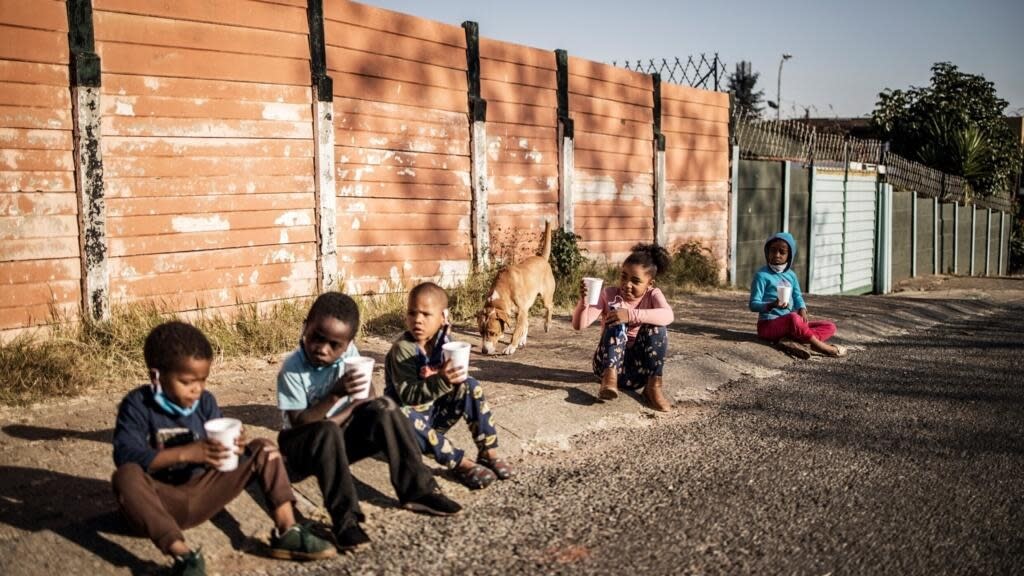Parties woo South Africa's poorest voters with promise of basic income

With a third of the population unemployed, poverty has dramatically increased in South Africa in the past five years, and millions depend on grants. As South Africans head to the polls on 29 May, both the ruling party and its challengers are promising to introduce a universal basic income – something activists have long called for, but are sceptical a new government can deliver.
For Elisabeth Raiters, an unemployed black woman living on the outskirts of Soweto, life is a daily struggle.
Her latest adversary is the public body responsible for distributing monthly cash grants first introduced as a Covid emergency measure. Scores of people in her community trying to secure the payments rely on her to take on complicated paperwork and possible corruption.
"I give people advice," she told RFI from her home in Eldorado Park, a suburb of the township on the edges of Johannesburg.
"I work on the ground with beneficiaries, so I've picked up on a lot of cases where people only have maybe 200 rand [about 10 euros] in their bank account, and actually get declined by the government because of these 200 rand. Like it's too much... Yet the threshold is 624 rand."
That amount, the equivalent of just over 30 euros, is the threshold below which someone has to earn per month to qualify for the government's Covid relief grant.
It corresponds to South Africa's food poverty line – the amount of money a person needs to afford enough food to get their minimum recommended daily energy intake.
Those whose monthly income falls below the cut-off are eligible for a stipend of 350 rand – around 18 euros.
But on the ground, says Raiters, a lot of people get left out.
Read more on RFI English
Read also:
South Africa's 2024 Elections: young voters and the legacy of apartheid
South Africa's ANC struggles with corruption scandals ahead of key elections
South Africans lose faith in ruling ANC as income inequality grows

 Yahoo News
Yahoo News 
